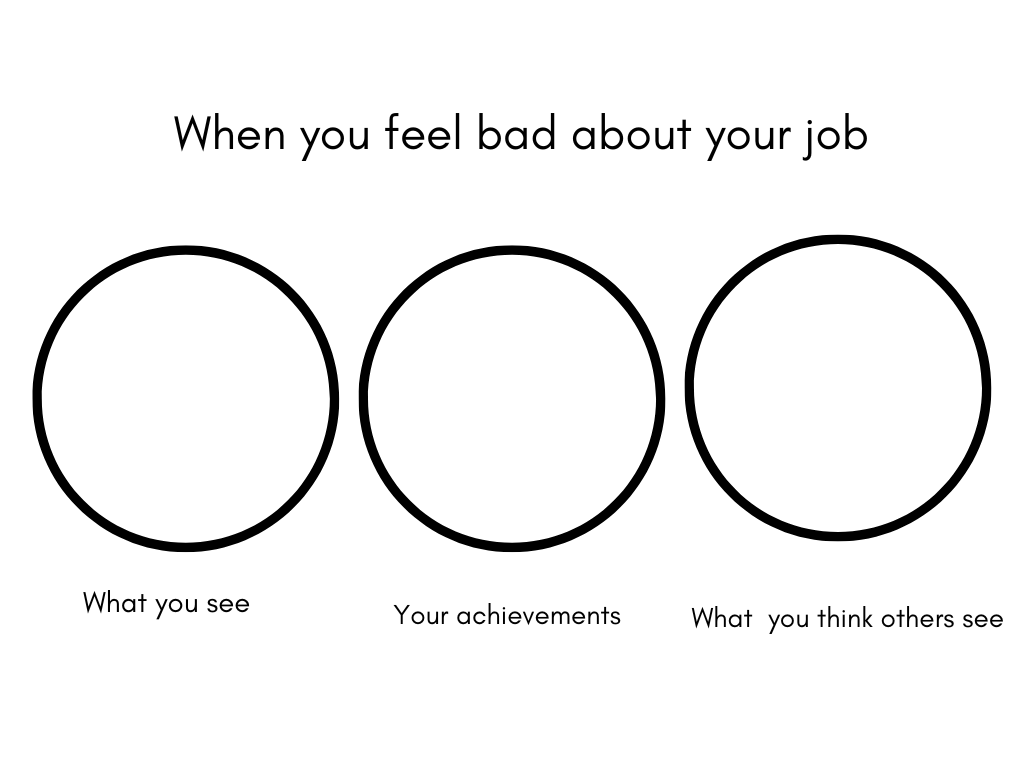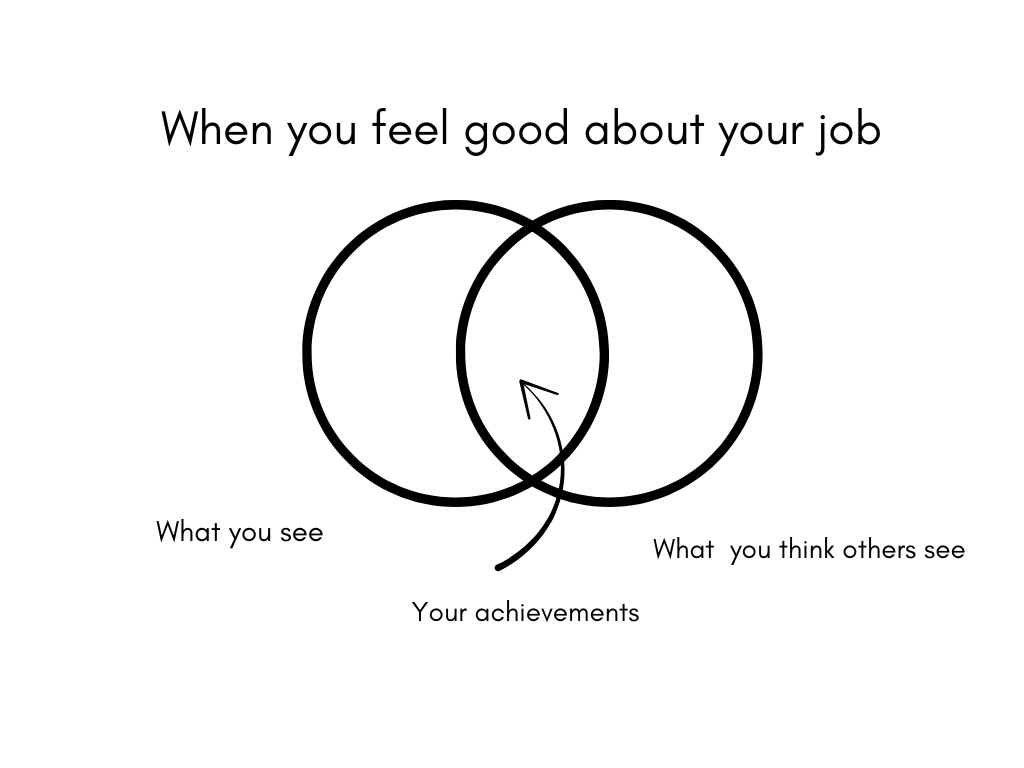So, one of the biggest things people say when they’re thinking about hiring me, is “I need to sell myself”.
Sometimes they think just a few tweaks from me on their resume will help them do that.
But it’s never just that, that’s needed.
My experience tells me, when you can’t find the right words for your resume, or believe the words you write on your resume, there’s something else going on entirely.
Actually, there are a lot of things going on.
Here are 8 that immediately spring to mind that I know are true from all the time I have spent writing resumes with my clients.
1. You’re not thinking outside the job
It’s hard to sell yourself if you’ve not ever sat down separately from your job and looked at what makes you tick, what you REALLY value, what you’re good at, or why you show up in the way that you do.
I don’t think it’s actually possible to have genuine and infectious enthusiasm for your strengths, or the role you’re targeting, without that level of self-awareness.
Nor is it possible to find a role that’s the greatest fit for you.
2. You’re relying on what your performance review says is good about you
It’s hard to sell yourself if you’re relying on what comes up about you in your performance reviews at work, and using this as a starting point for writing your resume.
In that scenario you’re only being evaluated against your fit for the company and the role, not all you bring to the table.
There’s often a lot more that is impressive about you, that’s not in your KPI’s or on your job description.
3. Something cr*p’s gone down at work
If something “bad” has happened at work, your attention can be focussed on what went wrong and what you need to do to fix that.
Without knowing it, you’re in survival mode.
You’re not so focussed on understanding yourself at a deeper level, or on what you’ve achieved.
What’s more, if you feel bad about you in your job, or if you’re bigger than the role or company, then without even realising it, your self belief can shrink to the “expectations” of your role, or others – meaning you only see yourself as successful, if you’re successful in that role context.
You can dig a hole for yourself that’s so deep, there’s not even a glimmer of sunlight at the top that lets you know you’ve fallen down.
Many of us are in that trap.
I’ve been there myself.
How you’re performing in your role can be disconnected from how you’re really performing and how you think other people see you.
In fact it’s possible, no relationship exists.
Here’s a not very good Venn Diagram I constructed to illustrate this.

When you do enjoy your job and you’re getting positive reinforcement, it’s easier to see the positives in what you’ve done.
It’s easier to have a more reliable view about what your achievements are.
Here’s another not very good Venn Diagram I constructed to illustrate that point.

4. You think you have to quote numbers or percentages on your resume
Most people fall into the trap of believing they can only claim something as an achievement on their resume, if it is reflected in numbers.
That’s because it’s pretty much the only advice you’ll read online about constructing your achievements.
Take it from me as someone who has worked with people across all sorts of professions, most jobs are not quantifiable that way.
So, if you only focus on what you can quantify as an achievement with numbers, you’ll limit yourself in some way.
There are a many different ways to illustrate what you’ve done without using numbers.
(And if you can quote numbers, think about this. Numbers are only meaningful if they have some context to showcase how they are impressive.)
5. You’re worried that you’ll be treated like the tall poppy who sticks their head out too far
The “tall poppy syndrome” which seems to be an Aussie/UK thing, can stop you from selling yourself authentically.
In our culture it just feels “wrong” to claim any sort of talent, or talk about your accomplishments.
Also, in some cases, showing that you feel good about yourself, particularly if you’re a powerful woman, invites all sorts of criticism, and can be downright dangerous as it “threatens” the status quo.
We seem to like people who are “humble”.
But the trouble with this, is that false humility (whether it is intentional or not) is disempowering to you and to others.
You don’t extend yourself to all that you’re capable of, because it simply does not occur to you to try.
If this is you, I want you to think about this.
You may not be doing anyone any favours, if you’re not realistic about your gifts and don’t share them more.
6. You’re not following the right writing process
If you’ve read what I have said so far and thinking I have not nailed your issue, perhaps it’s a writing process thing.
A good writing process starts with some decent self reflection.
When I work with clients, I only use their existing resume as a guide for jobs and dates.
I start with questions designed to elicit the story of each role, then take clients down a path that helps them identify their strengths, and skills then clarify their next move.
The right questions asked in the right way and in the right order, elicits the right achievements and the right focus for the resume.
7. You’re trying to do this alone
This is hard work to do by yourself – for a few different reasons.
Like I mentioned above, your confidence can be down and you are not objective about what you have delivered.
You also can’t see what the market values, or where you stand in relation to your competition.
It’s super helpful in this process to have someone listen deeply to you, understand your story, and unpack and reinforce what you have accomplished and what makes you unique.
Instead of taking what clients tell me at face value, when I work with my clients, we spend a lot of time getting all their stories out on the table covering the last 10-15 years of their career.
This exercise alone helps people see they have delivered a lot more than they think, and skills and strengths they have developed and repeated throughout their career.
This “slow down before you speed up” method serves as a confidence booster, as recognition comes from repetition.
My clients also tell me that the act of telling their stories to another human being, who’s only purpose in that moment is to understand them and reflect back their strengths and achievements, is cathartic. It helps them believe in themselves more.
You don’t get that human reinforcement or boost if you simply stick your PD into ChatGPT and say write a CV.
8. The recruitment “system” sets you up to fail…..or at least feel cr*ppier
What I’m about to say will annoy some HR and recruitment professionals, but it needs to be said.
How they instruct you to apply for jobs, and their entire recruitment process, can leave you feeling defeated.
Eye-tracking research has shown that recruiters spend as little as 7 seconds on your resume.
Yep, that’s 7 whole seconds.
They assess your entire value, in 7 cursory seconds!
When you apply for a job, the recruitment process typically starts like this.
You get an ambiguously worded job advertisement, where it’s not immediately obvious what the critical criteria are, or what you’ll be doing every day.
But you put in an application anyway.
Then you hear crickets, because your resume has missed the mark in some way that you’ll never know about, because you don’t ever hear back from anyone.
Or you get one of those generic replies saying “Don’t call us, we’ll call you.”
Or you apply for a role, and go through an interview.
Then if you do get feedback, it’s pretty generic and not helpful to you.
Or you get ghosted through the process, and you never know why.
Hit rinse and repeat of this cycle and tell me that you still feel good.
If you go through this scenario and still maintain your optimism, then you need to apply for the Dalai Lama’s job pronto.
What can you do to sell yourself better?
Watch my video on how to create your achievements on your resume.
If you’re still stuck and want an expert, outsider’s view to help you build something compelling and confidently move forward with your job search, check out my resume and LinkedIn packages here.

 Follow
Follow
{ 0 comments… add one now }